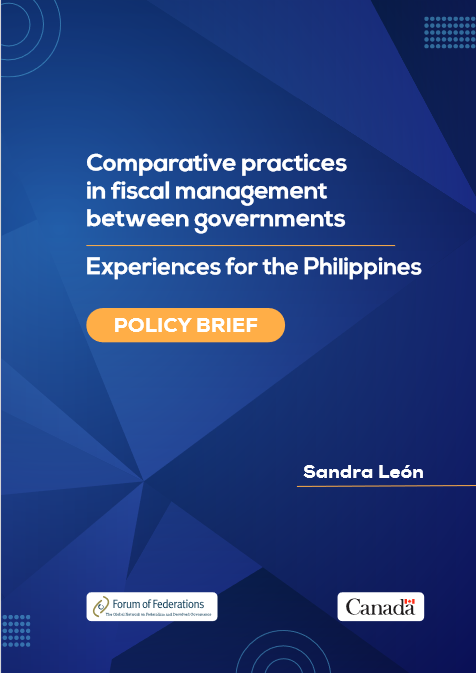Library

Language:
EnglishTopic:
Decentralization, Economy; Fiscal, Fiscal Equalization, Fiscal Federalism, Tax Regimes, TaxesCollection:
Conference ReportsCountries:
PhilippinesAuthors:
This Policy Brief was produced with the generous financial support of Global Affairs
Canada and produced by the Forum of Federations through the Supporting Decentralized
and Inclusive Governance in the Philippines Programme. The views expressed here are
those of the author and do not reflect the views of the Canadian Government.
This policy brief provides an overview of the theory and practice of fiscal federalism and
draws some implications for the evolution of decentralization in the Philippines. This policy
brief is organized into two sections. The first section analyzes the design of intergovernmental
fiscal arrangements and the nature of horizontal and vertical relations in federal and
decentralized systems by exploring three important drivers of intergovernmental conflict:
insufficient regional self-rule, high vertical imbalances and prominent regional economic
inequalities.
The discussion of each dimension includes some takeaway lessons for the
case of the BARMM region and, more generally, for the territorial model in the Philippines.
The second part of the policy brief analyzes the gap between the theory and practice of
fiscal federalism. It describes the distance between some of the normative principles of
fiscal federalism in three crucial areas – the allocation of transfers, the correspondence
between tax and spending powers and equalization transfers – and the perils associated
to a design of fiscal arrangements that deviates from those principles. This section
includes a reflection on the implications of the mismatch between theory and practice
for the Philippines as well as references to comparative cases to illustrate some of the
arguments in the discussion.

